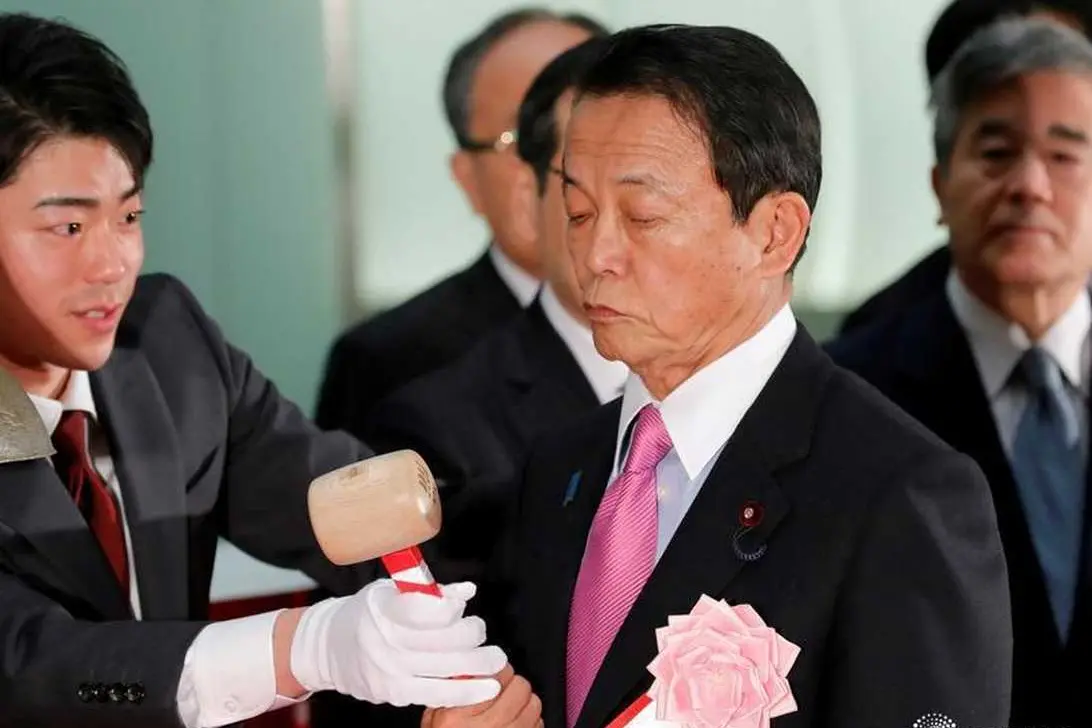PHOTO
Japan will put issues ranging from global trade imbalances to the impact of aging populations on the agenda when it chairs next year's meetings of leaders from the Group of 20 major economies, government officials said.
At the end of the G20 summit in Buenos Aires, Finance Minister Taro Aso unveiled the "priority issues" to be taken up by his counterparts and central bank governors next year when Japan takes over the chairmanship from Argentina.
Japan will host a G20 financial leaders' meeting in Fukuoka in western Japan on June 8-9, followed by a leaders' summit in Osaka on June 28-29.
Tokyo will assert that global current account imbalances should be fixed via multilateral policy coordination rather than bilateral trade deals, the officials said. They declined to be identified because they are not authorized to talk to the media.
Excessive imbalances should be adjusted by improving the ratio of investment and saving through macroeconomic policy and structural reform, they added.
Global imbalances had once been a key topic at G20 meetings with a focus on each country's current account balance, or the overall flow of money including, but not confined to, trade.
This approach runs counter to President Donald Trump's focus on narrowing the U.S. trade deficit using import tariffs and bilateral deals. His "America First" policies and the U.S.-China trade war have overshadowed debates at recent G20 meetings.
Japan's plans underscore Tokyo's view that instead of focusing too much on bilateral trade imbalances, there should be more emphasis on overall capital flows and structural factors behind the U.S. deficit - such as a lack of domestic savings.
Saddled with its own aging population and the industrial world's heaviest public debt burden, Japan will also highlight the issue of aging and its impact on fiscal and monetary policies at next year's G20 meetings, the officials said.
Bank of Japan Governor Haruhiko Kuroda has said an aging population could pose "serious challenges" for central banks, as it undercuts economies' growth potential and requires them to use more monetary firepower than before to boost growth.
Also on the agenda under Japan's G20 chair will be the need to ensure debt sustainability, given rising debt in low-income countries, and to promote high-quality infrastructure investment.
(Reporting by Tetsushi Kajimoto in Tokyo and Maximilian Heath in Buenos Aires; editing by Richard Borsuk and Jonathan Oatis)
© Reuters News 2018





















